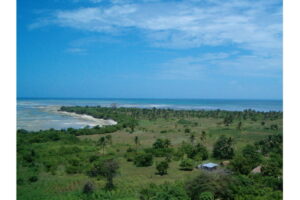
Arusha. The first-ever container loaded with avocados grown in Tanzania arrived in China on Monday, a key moment in what industry captains hope will be a financial jackpot for farmers and exporters, significantly enhancing their business prospects.
The maiden shipment, containing 24 metric tonnes of the Hass avocado variety, worth $18,500, was shipped by sea on October 28, 2024, and arrived at Hong Kong Port on November 18, 2024.
The breakthrough is the result of a joint effort between Africado Ltd, a pioneering Tanzanian avocado company and member of the Tanzania Horticultural Association (Taha), along with international partners such as Westfalia South Africa and the Chinese company Mr Avocado.
According to Africado’s Certification Manager, Mr Festus Nkuru, the container went through Chinese customs inspections smoothly, heralding a major commercial success for the industry.
“As we speak our first ever container loaded with Tanzanian avocados arrived at Mr Avocado’s South China Ripening and Distribution Center and the butter fruits are set to be distributed across retail supermarkets” Mr Nkuru noted.
For six years, Tanzanian authorities and Taha have been working closely to open the Chinese market to Tanzanian avocados. Africado, Tanzania’s largest avocado grower and exporter, is known for its vast operations.
Recognised as a leading producer in the region, Africado’s expertise in avocado cultivation becomes the first company to export premium-quality avocados to China.
“As we celebrate our first shipment of avocados to China, we are thrilled to mark this significant milestone for our company and Tanzania’s avocado industry,” said Mr Nkuru, highlighting the growth potential this market holds for local producers.
Africado Ltd, targets to meet the growing demand for high-quality Tanzanian avocados, contributing to its broader goals of international expansion and tapping into the rising global appetite for premium butter fruit.
The giant firm acknowledged the central role of the Tanzanian government, the Ministry of Agriculture Tanzania Plant Health and Pesticides Authority (TPHPA), Taha and the Food and Agriculture Organization (FAO), whose collaborative efforts facilitated the opening of this lucrative new export market.
Mr Nkuru said that the breakthrough not only boosts Africado’s position as a leading exporter, but also provides significant economic opportunities for local growers, promising higher returns and supporting Tanzania’s broader economic growth.
“As Tanzania’s largest grower and pioneer in the avocado industry, Africado Ltd, is optimistic about the economic multiplier effects of this development on both the company and the country’s agricultural sector” he explained.
During President Samia Suluhu Hassan’s inaugural state visit to Beijing, Tanzania and China signed a crucial protocol on sanitary and phytosanitary (SPS) requirements. This landmark agreement, reached during her engagement with Chinese President Xi Jinping, facilitates the entry of Tanzanian-grown avocados into China’s vast market, often referred to as the “butter fruit.”
China’s increasing demand for avocados, fueled by a growing health-conscious middle class, has transformed this once-unrecognized fruit into a prominent player in the imported fruit market.
Taha CEO, Ms Jacqueline Mkindi sees it as a significant opportunity for local farmers and exporters while strengthening bilateral trade ties between the two nations, has embraced this development.
Ms Mkindi expressed her gratitude to the Minister of Agriculture, Mr. Hussein Bashe, for his tireless efforts in liaising with Tanzania’s Embassy in China.
His work has been instrumental in ensuring that local companies meet the necessary standards to obtain SPS clearance. She also noted that China’s decision aligns with its broader strategy to rebalance trade by increasing African imports, fostering a mutually beneficial relationship with the resource-rich continent.
With over 1.4 billion people, China, the world’s 10th largest avocado importer, is poised to become a leading destination for Tanzanian avocados.
Previously, Tanzanian producers struggled to penetrate international markets mostly limited to Europe and the Middle East due to a lack of necessary SPS measures.
As the third-largest avocado producer in Africa, after South Africa and Kenya, this new market access represents a significant advancement.
“I am deeply thankful and proud of our President, Dr. Samia, for her exceptional diplomacy, opening up this lucrative market of a 1.4 billion population nation after six years of continuous efforts,” Ms Mkindi remarked.
The initial push to access China’s vast market began in 2018 when Taha identified its potential and urged the government to deploy diplomatic strategies to overcome trade barriers.
This initiative also aligns with Tanzania’s national goal to boost horticultural export value to $2 billion annually from the current $420 million.
Moreover, it promises substantial employment opportunities for youth and women throughout the value chain by 2030.
Official data from 2023 indicates that Tanzania exported 26,826.3 metric tonnes of avocados, generating approximately $73 million in revenue, showcasing the industry’s promising trajectory towards exponential growth between 2023 and 2033.














